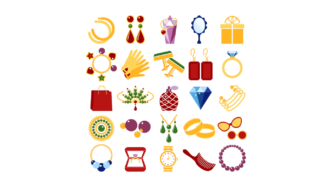LESSON OVERVIEW
In this lesson about health, students read a text about health myths, learn and practise some useful vocabulary and discuss health.
B1 / Intermediate60 minStandard LessonUnlimited Plan
READING & VOCABULARY
In the warm-up activity, students talk about the last time they were ill and explain what helped them recover from the illness. Then, they read a text about five health myths (e.g. If you are cold, you’ll catch a cold., Chicken soup will help you recover from the flu.). They need to pay attention to some underlined words while reading. Then, they match the underlined words from the text (e.g. cough, sneeze, runny nose, symptom, insomnia) with the corresponding pictures. To practise the new vocabulary, students do a gap-fill task. They have to complete eight sentences with the words from the previous exercise. Students will use the vocabulary from this part of the lesson about health in the speaking activities they will do in the second part.
SPEAKING
First, students need to cover the text they read in the first part of the lesson and in their own words explain what myths the text presented. There is a list of key words to help them with the task. Students also discuss the health myths and talk about possible dangers of these myths. Then, they do the second speaking activity in which they share their experience with difficult situations from the text, e.g. stress, insomnia and the flu. They also say whether they have heard any other health myths. In the last part of this lesson about health, students look at four photos (e.g. a group of people watching a funny film, someone taking a hot shower) and say how the things in the photos are related to health. They also have to talk about their experience with the activities in the photos.
Subscribe to unlock these and many other Standalone lesson lesson plans with the Unlimited planWORKSHEETS













For me, it seems a bit boring, sorry :-). Matching the pictures with the words….as usual. I love when you make the presentation colourful with a video, or a short clip. Or something that is moving 🙂 can broke the monotony.
Like this: https://www.youtube.com/watch?v=ud1QL1DqXEA&t=422s
Funny 😀 make the students smile 🙂
Thanks for the feedback! We tend to include some sort of video in 90% of our lessons but from time to time we decide to do things differently and, for example, work with text. Do give this lesson a try – I think people still believe some of these health myths (I thought one of these is true, actually), so it might be interesting to discover what your students think.
All right! I will give it a go 🙂
Honesty, they did not like it. I’m sorry. I feel this new style and type of lesson is not as interested as the previous one. The layout seems poorer.
You should´ve said: ….. this type of lesson is not as INTERESTING as the previous one. (Here you have a simple example with INTERESTED = I´m INTERESTED in learning French)
Absolutely right! Not as interesting as I expected 🙂
It was a rather empty lesson… I didn’t find it had much content. I like the new style but the content is inferior. Most lessons last 40′ tops. I hope they go back to the old style!
Hi Victoria,
Thank you for your feedback:) It’s great when users share their impressions. Could you please specify what you dislike about the lesson? This will help us avoid mistakes in the future.
Have a good day.
I like some of the changes, like the words disappearing as you use it. But the content was scarce… I guess I’m wating for “juicier” lessons because this one was a bit too short. Maybe I expected a video. As another commenter says, the lesson was way too simple. I’ll see what more advanced lessons are like because I love using the presentations! But I see people complaining about the same things, so perhaps the older version had some advantages. Thanks!!
Thanks for the comment! I just want to make it clear that the e-lesson plan design changes are not connected with a change in content. We still want to develop the same quality content as always. For the last 1-2 years, we’ve been occasionally creating lessons without a video but still 90% of lessons are based on some sort of video. Last year, we also added the CRC format which is shorter than standard lessons by design. However, whenever we develop lesson plans we intend to create a wholesome worksheet, depending on the needs sometimes it means 10+ exercises and other times it’s 7-8. I understand that you may feel that this lesson was not so extensive but we didn’t intend to cut corners and make it shorter by design, we simply felt that this lesson is complete in this form. I hope you will see the quality of our work in some other new worksheets coming in the next weeks.
How about adapting the material? At the end of the day it is up to the teacher to be interesting and teach in an interesting way. ESL Brains is a supplementary material.
The lesson is great! But presentation looks different, maybe you changed the style, but before was much better.
Thanks for the comment! Yes, we’ve started to update our e-lesson plans and have a new layout. You can read more about the changes here.
My A2 students loved this lesson, we went on to speak about differnet health myths in different cultures.
(Feed a cold, but starve a fever, for example)
I really like the new design too. Keep up the good work!
Hi Sam,
It’s great to hear your students found the lesson engaging and the new style clicked with you:)
We’d appreciate it if you keep us updated about other lessons you use!
We’ve just had this lesson with my student a few weeks ago. He’s not a fan of videos and likes seeing the material we’re discussing. And it turned out to be a great hit with him. Thank you for a great lesson plan!
Thank you so much for taking the time to comment! We’re thrilled the lesson was such a success!
Hi! I’ve read the comments below and I’d like to say that calling this lesson boring is just unfair. I can imagine the whole team working on it, doing their job really well and then seeing these comments. Heartbreaking!
Every teacher has their own style and vision, so if it hasn’t worked for someone, it doesn’t really mean that the lesson is boring (not to mention “bad”). Actually, I’ve used this lesson in combination with some other health-related lesson plans on ESL Brains and got the topic covered fully (reading + vocabulary practice + speaking + watching the video about a nurse). After working on this presentation, we had a heated debate on some other health myths and it was far from dull!
Actually, I always rely on your website as one of the most trustworthy ones, so thank you and keep doing your job! P.S. The style is really nice:)
Hi, Marina! Thanks for sharing your thoughts and ideas with us! We’re happy your students enjoyed the lesson and had some lively discussion on the topic 🙂